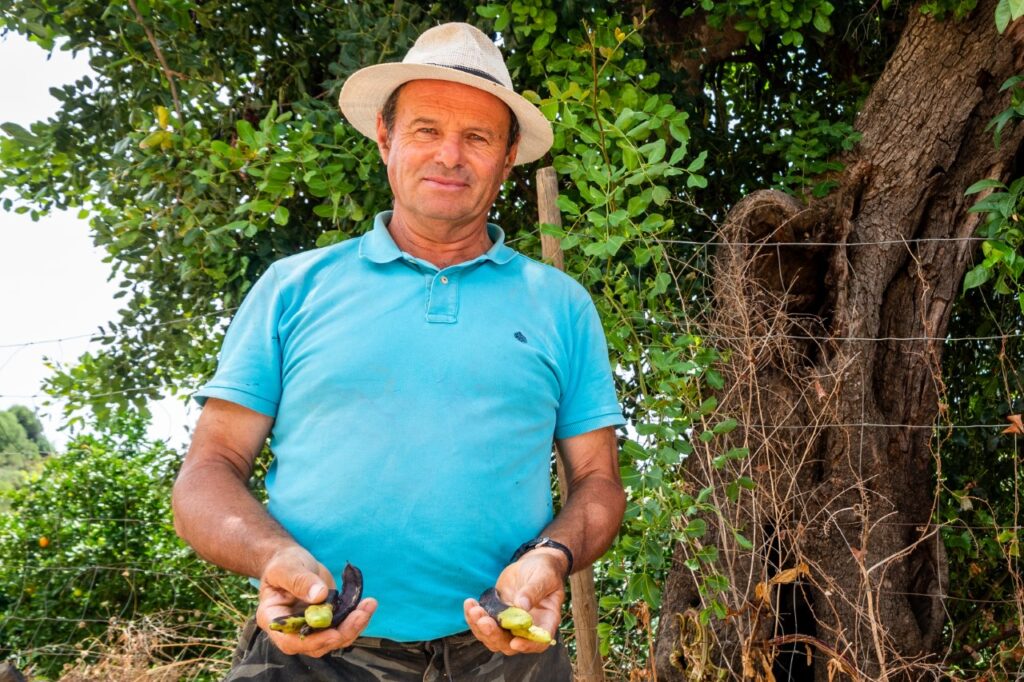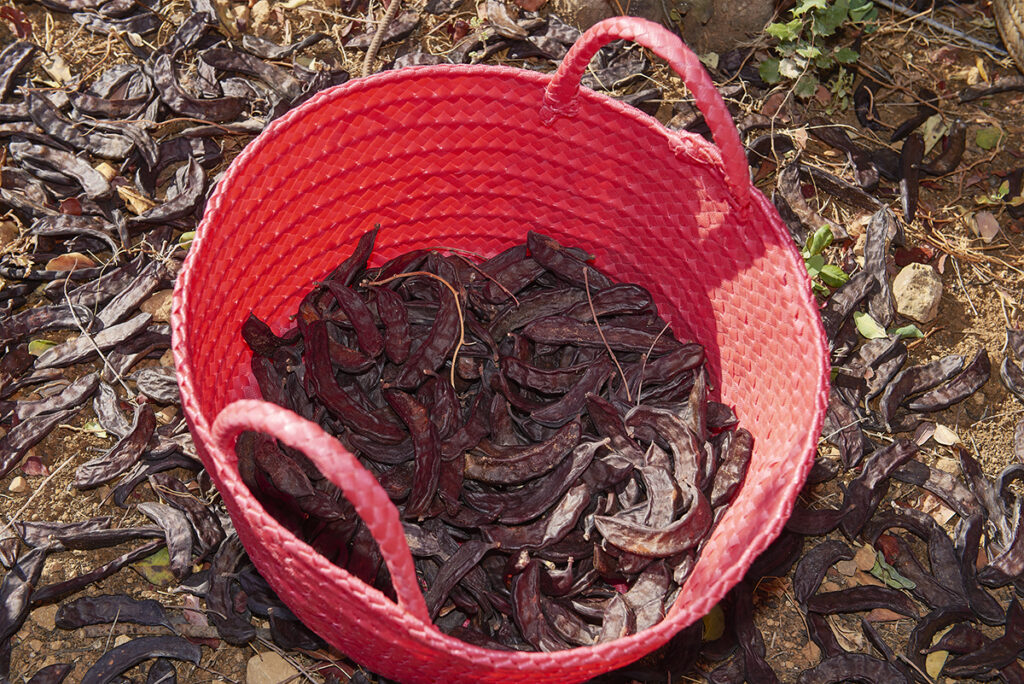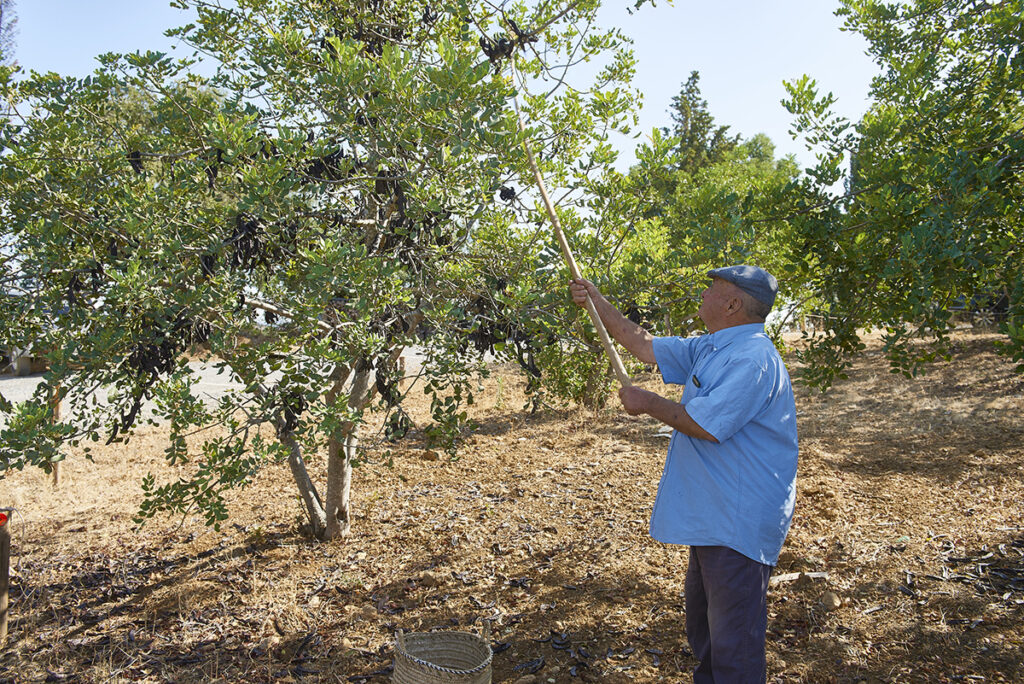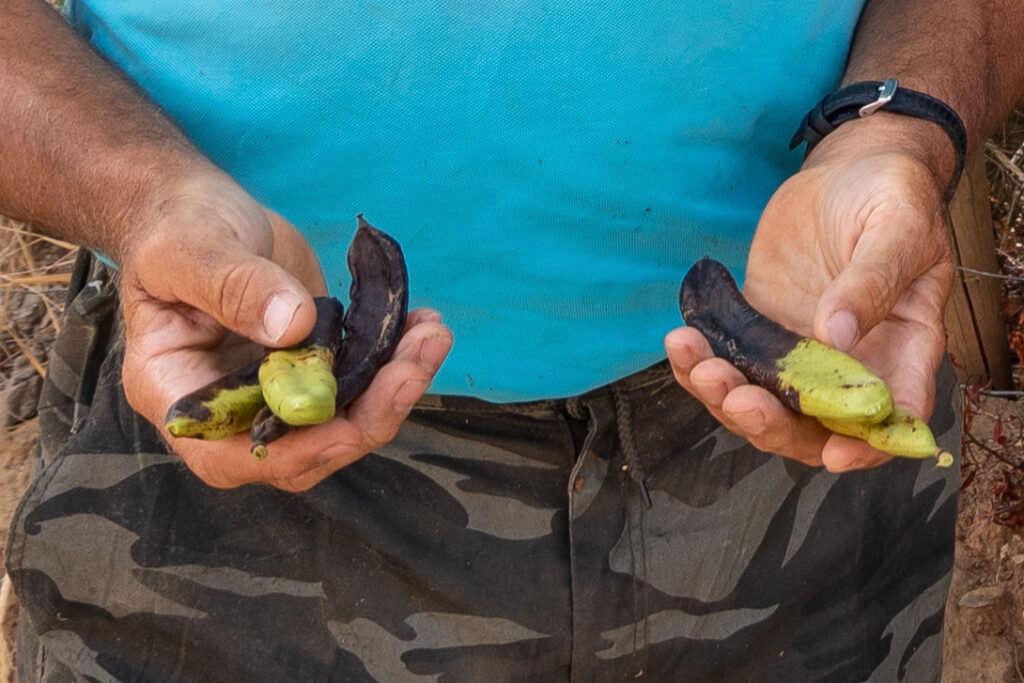There is a proposal for a law to «avoid the tradition that the theft of carob has become» and a strong expectation on the part of producers that it will get off the ground. But, say the farmers, the diploma, which is based on traceability of origin and legitimacy of sale, "stuck" in the offices of the Ministry of Agriculture, in Lisbon, despite the thefts are increasing.
Carob producers in the Algarve will take to the streets in protest on the 29th of July, a Friday, at 18:00, in Loulé, to express their displeasure at the absence of measures to protect and mitigate the recognized scourge of the theft of this and Other cultures.
"We have a justice that, at the moment, favors those who steal". This sentence, spoken by José Macário Correia, former mayor of Tavira and Faro, which today is 100% dedicated to agriculture, illustrates well the sentiment of the producers.
In an interview given to Sul Informação in Pego do Inferno, close to his property and in the middle of the barrocal, Macário Correia does not spare criticism of the Ministry of Agriculture and the Regional Directorate of Agriculture and Fisheries of the Algarve, which he accuses of being “incompetent” and of not defending “not even those who work, nor the farmers”.
«There is a lady from Abrantes, who took office as Minister of Agriculture in a ceremony that took place in Lisbon, a few months ago, but who does not exercise the function. This is something that happens for the first time in many years: she doesn't perform the function, she doesn't add anything, she says some nonsense, she has no idea what she's doing”, accused the former mayor of the PSD.
As for Pedro Valadas Monteiro, regional director of Agriculture and Fisheries, “he has not had the adequate involvement to solve the problem”, defended Macário Correia.

José Filipe, from Agrupa – Agrupamento de Produtores de Alêndoa e Alfarroba, which organizes the protest on the 29th, does not personalize the criticism – he even praises Pedro Valadas Monteiro for the work he developed together with the producers -, but he does not fail to show indignation with the situation.
«We are going to hold this demonstration because for more than 20 years we have been in contact with different entities – the Regional Directorate, the Civil Government when it still existed, the GNR – asking for measures to prevent this happening. tradition what the carob theft became', something that never happened, he said.
“They invade the land, do what they want and even use violence, even if it is verbal, with threats. There are producers who are afraid to go to their own lands, afraid of who they might find there», reveals the director of Agrupa.
In 2020, at the initiative of the Regional Directorate of Agriculture and Fisheries of the Algarve (DRAPAlg), a working group was created to create the Action Plan – Citrus, Avocado and Carob Theft in the Algarve, which in addition to Agrupa and AIDA, the other Algarve association in the sector, integrated ASAE, the Tax Authority, GNR and AMAL.
At the meeting of this working group, there was talk of creating specific legislation for carob, «similar to what already exists for pine cones».
“DRAPAlg suggested that a law be proposed to the Government that would require a declaration of origin, so that carob can be sold. The legislation was worked on by the different partners and, in the first months of 2021, we reached a proposal, which DRAPAlg sent to the guardianship", revealed José Filipe.

And what does the diploma that resulted from the working group provide?
«The proposal basically involved the association of a title deed to the act of sale. The land has three fundamental documents: a building book, a finance book, a registry of the Conservatória and a parcel, which is the geographical reference of the type of crops that are on that land, which is used for subsidies, for investments and all that», framed Macário Correia.
"In this way, when the person proves that he has that parcel with carob and has a document from the Conservatória, he proves that he is the owner of the land, in a reliable way", he added.
At this moment, anyone, “even if they don't have any documents, arrives at the place where carob beans are bought, they sell them at any price, possibly even lower, and they know that nothing happens to them”.
“Our hope was that the legislation would come out in time for the 2021 campaign. Then the Assembly of the Republic was dissolved, and nothing happened”, said José Filipe, for his part.
“However, the new Government took office and the regional director told us that the proposal was with the guardianship and that he had no further information”, said the association leader.
Contacted by Sul Informação, Pedro Valadas Monteiro confirmed the drafting of the diploma, as it was already public, but sent further clarifications to the office of the Minister of Agriculture.

José Filipe's hope was not only based on decades of waiting for a solution. It was also linked to the fact that 2022 was a year of plenty and, as such, a greater attraction for thieves.
«This year, there is a record production of carob and there is a very high price, compared to usual. In 2021, the price started at around 20 euros, at the end of July, beginning of August, which is when the campaign starts, and ended around 50 euros, in December», framed Macário Correia.
Now the price «is above what it was last year – they talk to me about values in the order of 38/40 euros - but there is a tendency to increase the price, from the summer to autumn and winter», he added.
“The campaign was only supposed to start in August, but the thieves got ahead and the producers have to catch the carob before it is stolen. This year, there is more pressure, according to our partners, there are more people wanting to steal», revealed José Filipe.
For this association leader, the “legislation would greatly help the authorities. It would make it possible to apprehend the product immediately, if people did not have the documentation».
Currently, without a law similar to the one proposed by the Algarve to the Government, it is very difficult to prove that someone stole the carob they are selling.
This is valid for the GNR, which, in essence, can only act when it catches someone in the act of committing a crime, but also for the traders.
“Buyers are not at fault at this time, other than morally. It's a complicated situation. Someone comes to them with carob to sell and they have no legal argument to say they don't buy it», believes Macário Correia.
«I've seen people at the counter where I'm going to sell my carob pods sell fruit that I know has been stolen. But I can't do anything, because I have nothing to prove it. And then there are tricks: they say they leased a carob tree or that they asked the owner and they sell a ton”, she assured.
Basically, the demand of carob producers in the Algarve is not complicated: «we want the Government to publish legislation that is ready and that encourages inspection», summarized José Filipe.




















Comments